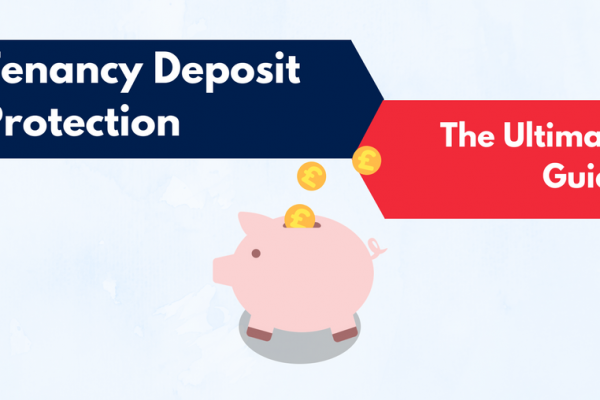Find out everything you need to know about holding deposits as a landlord, including what happens if the tenancy doesn’t go ahead.
So, what is a holding deposit? It’s a refundable payment made by the tenant to show their serious intent to rent your property.
Also known as a holding fee, it’s paid before signing the tenancy agreement. If accepted, both the landlord and the tenant typically have a two-week window to enter an agreement.
To make the process even easier for you, we’ve answered some of the most common questions landlords may have about holding deposits.
- What are the rules when it comes to holding deposits?
- Why does OpenRent use holding deposits?
- What if a tenant places a holding deposit before I’ve asked for one?
- Can I accept multiple holding deposits at once?
- What happens to the holding deposit if someone pulls out?
Our premium tenancy creation service covers referencing, contract signing, money handling, and more – all for just £69.
Explore Rent NowWhat are the rules when it comes to holding deposits?
Starting from 1 June 2019, the Tenant Fees Act (2019) introduced new guidelines on handling holding deposits. Here’s a simple breakdown:
- Landlords can only ask for up to one week’s rent as a holding deposit
- Landlords can’t subtract fees (incl. referencing fees) from the holding deposit
- Landlords can’t take holding deposits from multiple tenants at once
- Landlords will only be able to keep the holding deposit for 15 days unless another ‘deadline’ date is agreed in writing
- After the deadline expires, the holding deposit must be repaid within seven days
After accepting a holding deposit, the property should be taken off the market while reference checks are done, and a contract is agreed upon.
At OpenRent, we can manage the holding deposit for you and ensure compliance with these rules as part of our Rent Now service.
To learn more about how OpenRent handles holding deposits, be sure to read our step-by-step guide on our Help Centre.
What is being ‘held’?
The real function of the holding deposit is not only to hold the property for the tenant. In reality, it’s also the tenant who is being ‘held’ for the landlord.
The risk of forfeiting the deposit discourages tenants from backing out once the landlord has accepted their holding deposit and agreed to proceed exclusively with them.
The money itself is paid to OpenRent and held on behalf of the landlord. It’s then put towards the first month’s rent when the tenancy goes ahead.
Unlike tenancy deposits, holding deposits don’t require protection in a government-authorised tenancy deposit protection (TDP) scheme.
You might also be interested in…
- When Will the Renters (Reform) Bill Become Law?
- When Will Section 21 Evictions Be Scrapped?
- What Does the Renters’ Rights Bill Mean for Landlords?
- Are Rent to Rent Schemes a Good Idea for Landlords?
- Should I Transfer My Buy-to-Let Properties to a Limited Company?
Why does OpenRent use holding deposits?
We have incorporated holding deposits into our system to provide reassurance to both landlords and tenants about the level of commitment involved in starting a new tenancy.
When tenants pay the holding deposit, it tells landlords they are serious about renting a property.
On the other hand, tenants can be confident that the property is not being advertised to other renters. It’s a two-way street that benefits both parties.
Many tenants find it reassuring to pay the deposit to OpenRent rather than directly to a landlord they may have only met once. This gives them peace of mind, knowing that their money is being handled securely.
What if a tenant places a holding deposit before I’ve asked for one?
This is uncommon, and we encourage tenants to refrain from placing a holding deposit without first viewing the property, meeting the landlord, or discussing it with you.
In the event that you receive an unexpected holding deposit offer, there’s no cause for concern. Your advert won’t be automatically taken down until you officially accept the holding deposit.
As soon as a tenant places a holding deposit, OpenRent contacts you straight away via text and email. So, if it catches you by surprise, you can easily cancel their Rent Now application with just a few clicks.
Your listing remains active until you formally accept a holding deposit, meaning there’s no cost to either party in the meantime.
Can I accept multiple holding deposits at once?
No, according to the Tenant Fees Act (2019), landlords are now restricted to requesting and accepting only one holding deposit at a time.
If you have interest from multiple tenants or if you wish to evaluate the suitability of each applicant for your property, consider ordering referencing before requesting a holding deposit.
Doing so will keep your advert active throughout the referencing process.
Do holding deposits get refunded?
Stopping marketing a property can be a hassle for landlords, costing time and money. The holding deposit is there to help mitigate that risk for you.
If things go south, and tenants back out before everything is set up, the holding deposit is usually kept by the landlord as compensation.
When OpenRent handles the holding deposit for you, both parties can easily confirm the forfeiture through their accounts. Moreover, we’ll take care of re-marketing the property for you at no extra cost.
In case your circumstances change, and you (i.e., the landlord) can’t proceed with the tenancy, the holding deposit is then returned to the tenant.
OpenRent is the cheapest and best way to advertise your rental property on the UK’s major property websites.
Get Started TodayWhat happens to the holding deposit if a tenant fails referencing?
The law is clear – a tenant failing referencing doesn’t automatically mean the landlord can claim their holding deposit.
This is because even if a tenant fails referencing, it doesn’t necessarily rule them out as a potential tenant, as referencing is largely advisory for landlords. There are other ways to proceed with setting up the tenancy, like asking for a guarantor or requesting more than one month’s rent in advance before the tenancy begins.
Before starting the referencing process, it’s a good idea for landlords to confirm with the tenant that there’s a reasonable chance of passing the reference check.
Before referencing begins, it’s also sensible for landlords to check with the tenant that they have a reasonable chance of passing the reference.
If it’s discovered that a tenant provided false or misleading information to misrepresent their circumstances during referencing, the Tenant Fees Act allows the landlord to claim it as forfeit.
This can happen only when a tenant provides misleading information that significantly affects their suitability to rent the property; or when the attempt to mislead the landlord provides reasonable grounds for refusing to grant them a tenancy.



